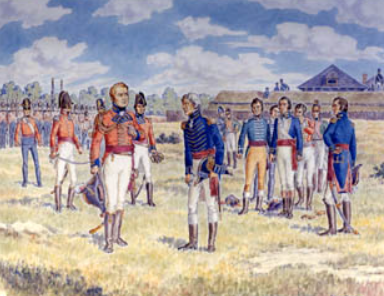The British surrender of Detroit on June 11, 1812, during the War of 1812, marked a turning point in American history. This event boosted American morale and showcased the nation’s determination to defend its sovereignty. Let’s explore the circumstances surrounding the surrender and its profound implications.
Background of the War – The War of 1812 between the United States and Great Britain arose from grievances including maritime rights, trade restrictions. Detroit, a strategic outpost, served as a crucial link between Canada and the American frontier.
The Siege of Detroit – In 1812, General William Hull found his forces surrounded by British and Native American troops led by Major General Isaac Brock and Tecumseh, respectively. They placed Detroit under siege, leaving Hull’s troops in a precarious situation.
Hull’s Decision to Surrender – Facing supply shortages, a demoralized militia, and exaggerated reports of the enemy’s strength, General Hull made the fateful decision to surrender Detroit to the British on August 16, 1812. This decision shocked and disappointed Americans who had expected a strong defense.
Consequences of the Surrender – The surrender handed control of Detroit to the British and their Native American allies, consolidating their positions in the region. However, it also sparked outrage among Americans, leading to a reevaluation of strategy and an influx of volunteer soldiers.
Turning the Tide – The surrender became a catalyst for change. General William Henry Harrison took command and spearheaded a campaign to regain control of Detroit and the Northwest frontier. With Oliver Hazard Perry’s naval victory on Lake Erie, Harrison launched a successful offensive, culminating in the Battle of the Thames.
Retaking Detroit – In September 1813, American forces recaptured Detroit, restoring control over the territory. The victory uplifted the nation’s spirits, proving America’s resolve to defend its interests against a formidable adversary.
Legacy and Significance – The surrender and subsequent recapture of Detroit played a pivotal role in the War of 1812. It symbolized American resilience and determination, inspiring further victories and leading to the war’s conclusion in 1815. The British surrender of Detroit on June 11, 1812, was a crucial moment in American history. Despite the initial disappointment, it sparked a renewed determination to defend the nation’s sovereignty. The event served as a rallying cry, ultimately leading to the recapture of Detroit and solidifying American resolve in the face of adversity.


